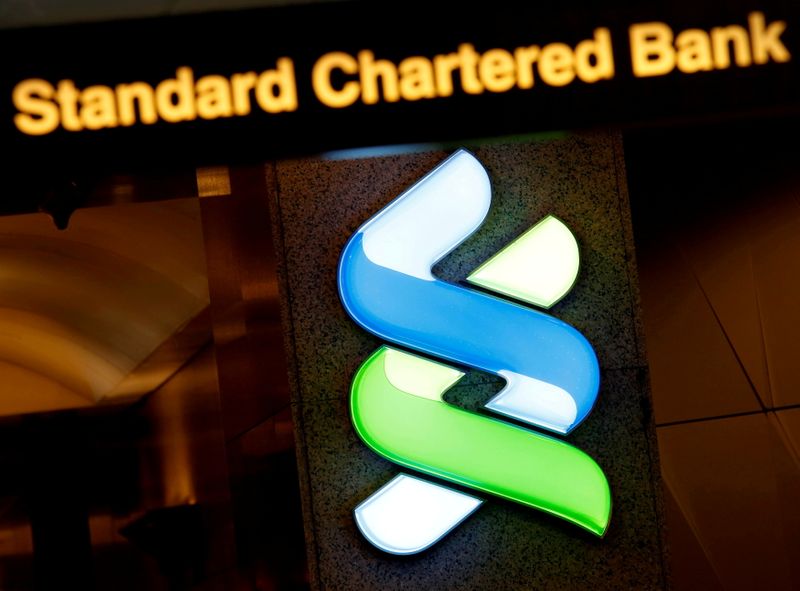By Anshuman Daga and Lawrence White
SINGAPORE/LONDON (Reuters) - Standard Chartered (OTC:SCBFF) on Tuesday forecast flat full-year income and dashed investor buyback hopes, sending its shares down 8% despite better than expected quarterly profit.
CEO Bill Winters, who has won praise for repairing the balance sheet and cutting thousands of jobs since taking the top job in 2015, has been under increasing pressure in recent years to boost revenues and lift the bank's ailing shares.
The strong quarterly results and $2 billion share buyback reported by Asia-focused rival HSBC last week had raised hopes among some investors that StanChart would follow suit, but analysts said it was conserving capital instead.
"We had hoped that a further $250 million share buyback would be announced today. Management has essentially decided to keep its powder dry," said Investec analyst Ian Gordon, referring to a possible bid for Asian retail banking operations earmarked for sale by Citigroup (NYSE:C)
The British-based bank also took a slightly more uncertain view of the global recovery from the COVID-19 pandemic than rivals who have released cash set aside to cover bad loans that never materialised.
"The economic recovery from the COVID-19 pandemic has continued to be uneven and punctuated by supply chain disruption," StanChart said in its results statement.
PROFIT LEAP
StanChart's third-quarter statutory pretax profit more than doubled year on year to $996 million, helped by lower credit charges. The average estimate from 16 analyst forecasts compiled by the bank was for a $942 million profit.
Credit impairment charges fell to $107 million from $353 million, with the bank saying it expects these to remain at low levels in the fourth quarter.
Overall income rose 7% to $3.8 billion, with the bank reiterating its target of 5-7% income growth from next year.
StanChart, which bases its business on capturing trade flows between its key markets of Asia, Africa and the Middle East, said trade income rose 13% to its highest since early 2018.
CHINA EXPOSURE
The bank said it had $4.2 billion in exposure to China's real estate sector, where China Evergrande Group is grappling with a $300 billion debt pile and stoking fears of further defaults and contagion risks.
"We continue to monitor the potential second-order impacts of recent developments," StanChart said, stating that overall exposure of $18.5 billion to commercial real estate, a fraction of the group's $302 billion in total customer loans and advances.
Like HSBC, StanChart has been betting on the world's second-largest economy to help to drive growth, but Winters faces a challenge convincing investors of his bank's prospects

StanChart, the biggest shareholder of which is Singapore state investor Temasek Holdings with close to a 17% stake, is trading at a lower multiple than its peers. It trades at 0.44 times book value for 2022, compared with 0.62 times for HSBC and 0.55 for Barclays (LON:BARC), Refinitiv data shows.
Winters is by far the longest-serving CEO at a major British-based bank. The shock departure of Barclays CEO Jes Staley on Monday means Barclays, HSBC, Lloyds (LON:LLOY) and NatWest have all had a change at the top in the past two years.